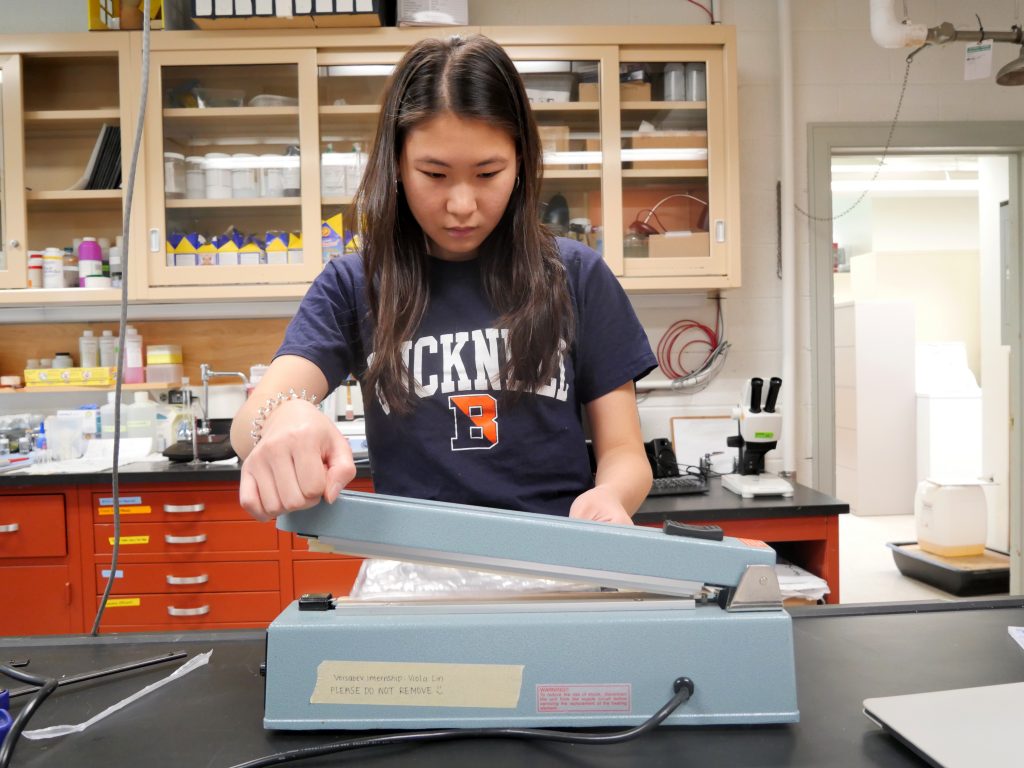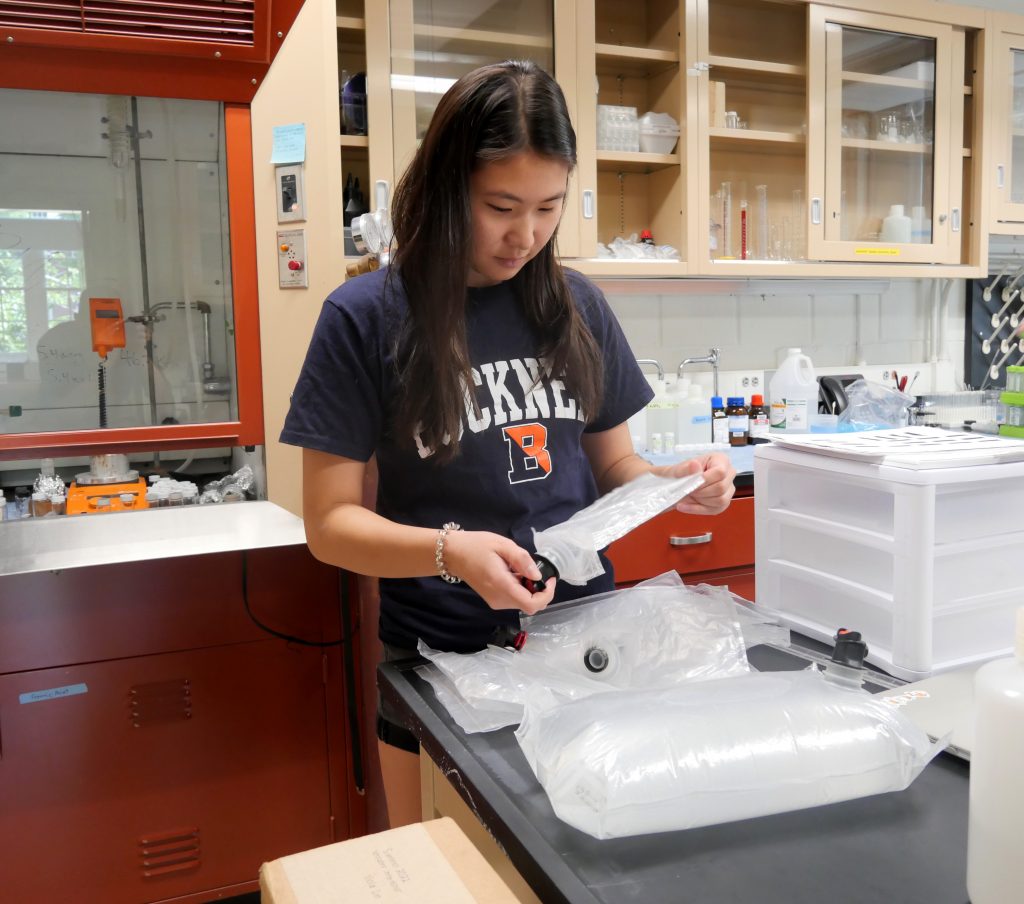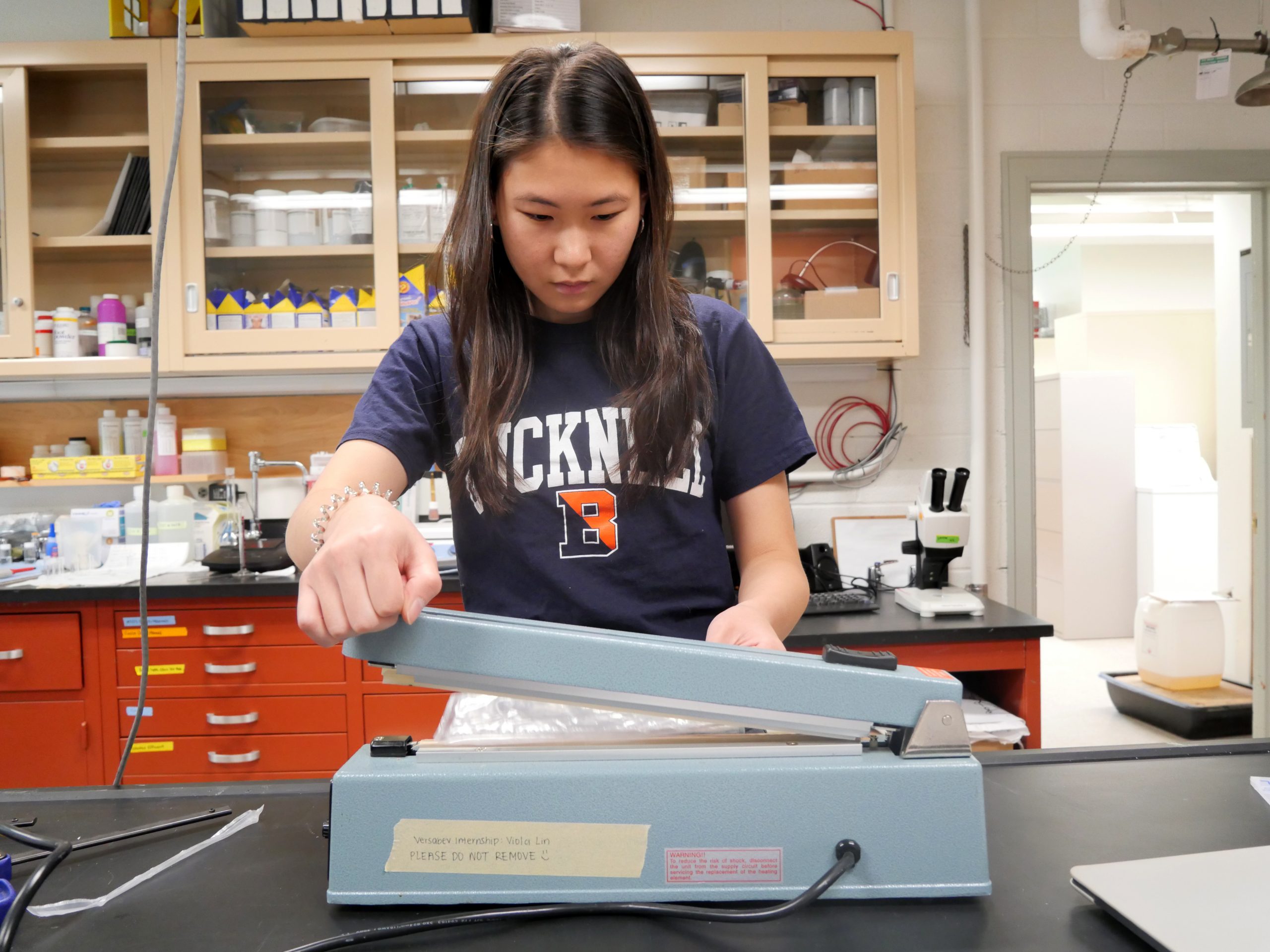
Today, students use internships to develop valuable skills, build a network of professional colleagues and propel themselves to a meaningful career. This summer, Bucknell’s College of Engineering has made internships more accessible at an earlier stage through its new Internship in Residence Program.
Securing a summer internship is an exciting milestone for engineers. However, there are challenges involved. Students often need to find short-term housing in the city where their internship is located, which may not be financially feasible. The Internship in Residence Program takes place entirely on Bucknell’s Lewisburg, Pennsylvania, campus, with the University’s resources readily accessible. Participants still enjoy the hands-on experience of working closely with a company on a real-world project, and with today’s technology, it is easier than ever to have a substantial impact without being on site.
Students who are selected for the Internship in Residence Program — which is initially available only to rising sophomores — receive free on-campus housing and a stipend, along with access to Bucknell faculty, staff and facility resources. In turn, they are expected to work full-time for 10 weeks on a high-impact company challenge and provide professional communication and updates, including a final project report, to their faculty adviser and company mentor. The project sponsor provides an impactful project and funding as well as a mentor to offer consultation and direction for the student intern.
“The Internship in Residence Program provides an engaging experience early in an engineer’s career,” says Erin Jablonski, associate dean of faculty and the program’s founder. “Our students are versatile and imaginative so they propose a variety of clever solutions for the client to consider. I am confident that our project partners will find this a worthwhile investment.”
Viola Lin ’25, chemical engineering, is an inaugural student participant in the Internship in Residence Program. She is working with Versabev, an innovative company that develops blending and dispensing equipment designed for on-premise and other ‘away from home’ venues to serve freshly made drinks and beverages more efficiently, effectively and profitably. One of the founders of Versabev is Bucknell graduate Bill Vitriol ’75, who is Lin’s mentor.
“Bill and I have been keeping in close contact,” says Lin. “He gave me his phone number and told me to contact him any time. He has so much attention on this program and sees a lot to gain from what I’m doing.”
Lin’s project is to enhance the sustainability of Versabev’s primary plastic packaging for its five-gallon Bag in a Box (BIB) product. Her first step was to research what is already on the market and she is recommending using a more biodegradable material derived from renewable resources like corn starch and sugar cane. She and Jablonski have also reimagined the use case for the bags, with the goal of having less disposable material and a robust delivery system.

By the end of the 10-week program, Lin expects to have a prototype incorporating the new bag material, novel delivery mechanism and a written report to share with Vitriol.
Lin’s research initially indicated her prototype would need to be adaptable since the Bag in a Box is very common. Syrup for dispensed carbonated beverages, milk at a cafeteria, condiments, wine and beer are among the many products that utilize the unique packaging. But she has since learned that the specific mechanism to accompany the sustainable packaging concept will work best with wine. The focus is now there, with the potential of branching out in the future.
It’s amazing that Lin can take on a project of this magnitude after only one year of college. She credits some of her experiences in ENGR 100, Bucknell’s introductory engineering course.
“ENGR 100 helped with idea formulation and how to create a prototype,” says Lin. “My team made a compostable bin. We had a lot of ideas and brainstorming time, and that really correlates to what I’m doing now.”
A major difference for Lin during the Internship in Residence program versus ENGR 100 is the fact that now she is working alone rather than as part of an interdisciplinary team. Despite that, she is not on an island.
“Working by myself has made me reach out to other people, so I’m technically not working individually,” says Lin, who has received plenty of guidance from Jablonski and has regular check-ins with Vitriol. “I’m learning a lot from each person I talk with.”
Lin already has examples of things she’s learned this summer.
“Dean Jablonski and I spent a lot of time at the beginning considering alternative bag materials and delivery mechanisms. For each potential solution, we had to consider feasibility, costs and benefits, so I learned a lot about different sustainable materials,” notes Lin, who has also used a number of new instruments during her Internship in Residence Program.
Because of her connections with industry professionals like Vitriol, the unique learning experience of completing a project on her own and the opportunity to live and work on Bucknell’s campus during the summer, Lin says that she would highly recommend the Internship in Residence Program to others.
